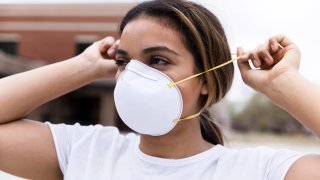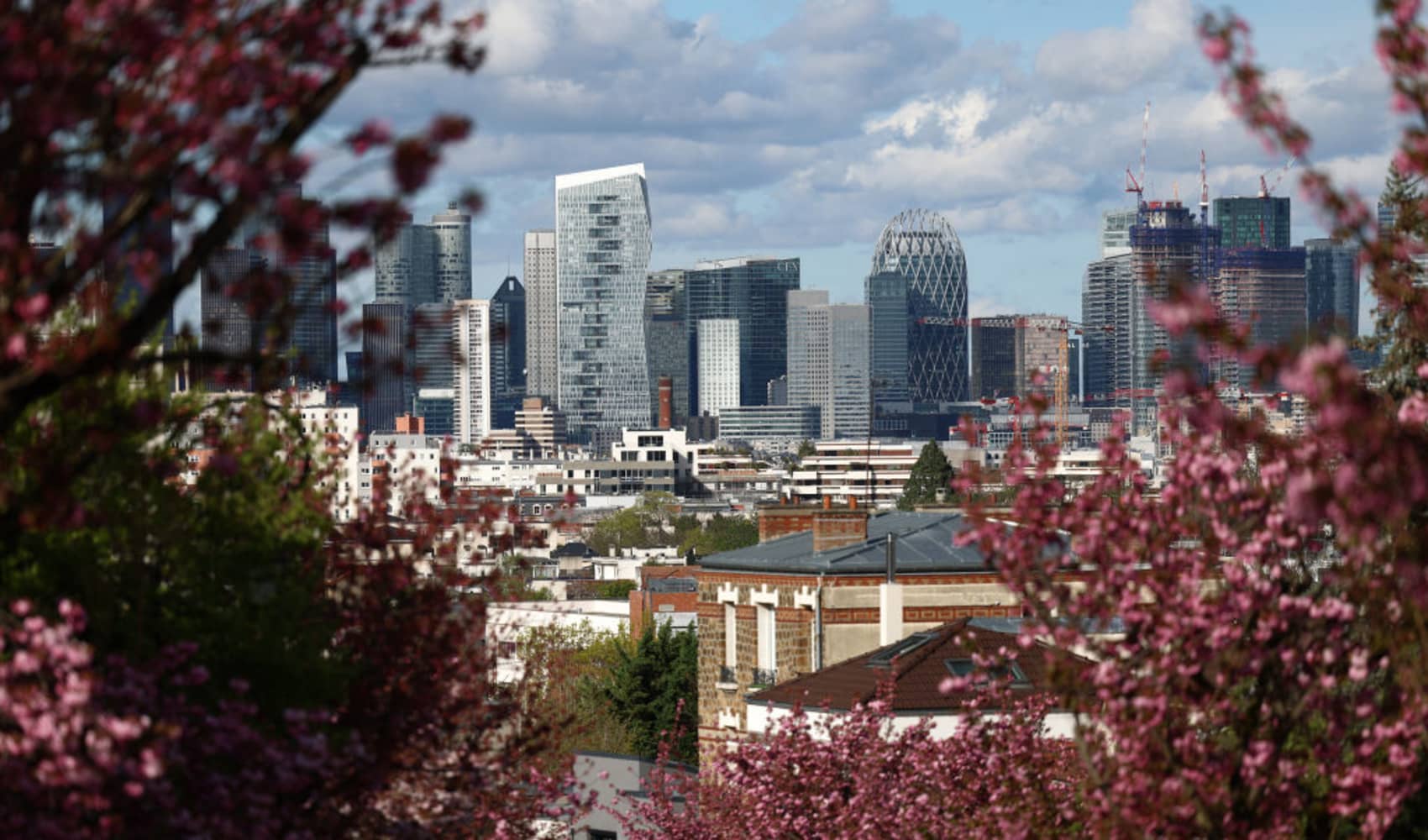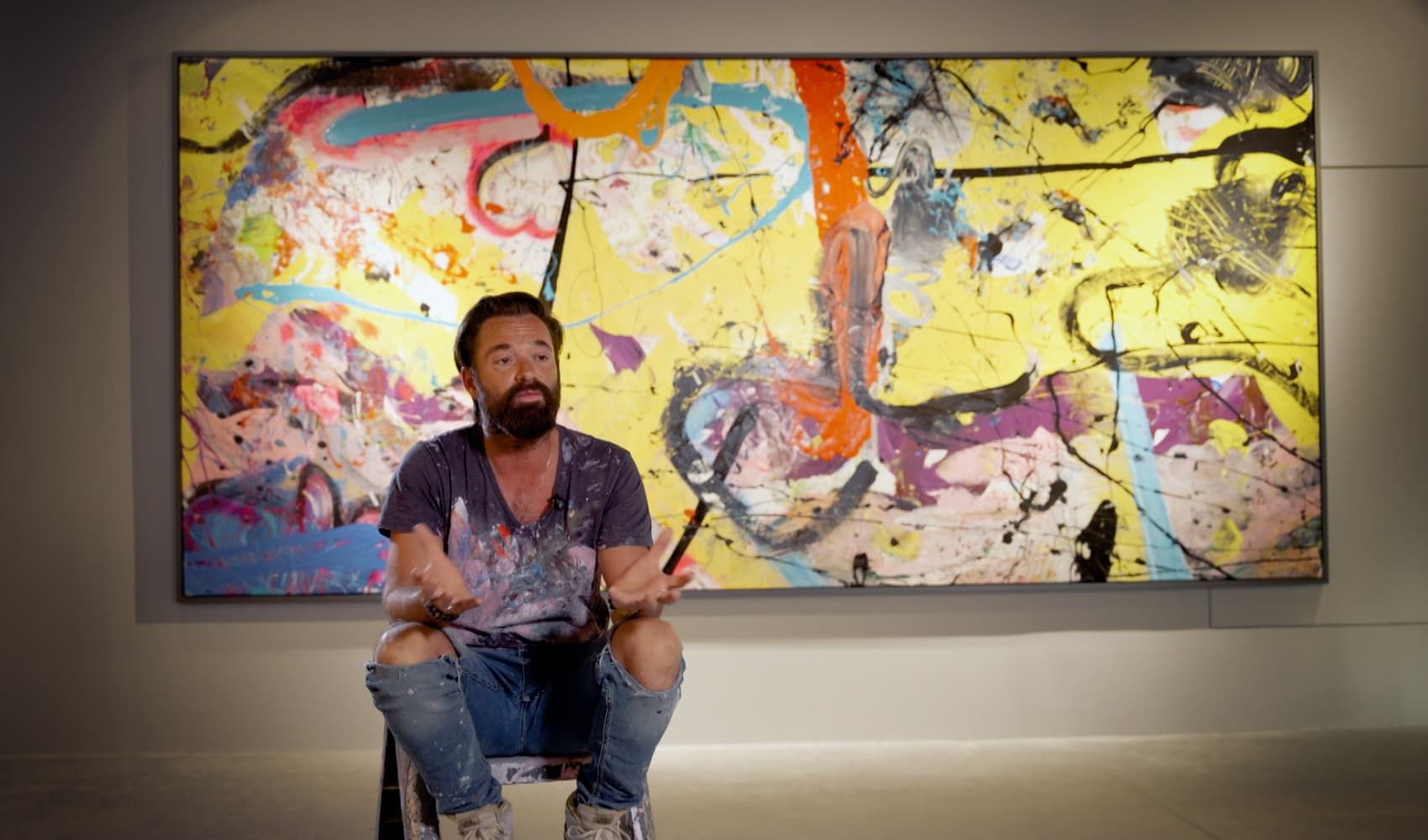
With the CDC now recommending highly protective N95 masks to combat surging cases of Covid-19's omicron variant, and news of President Biden providing 400 million N95 masks to pharmacies and community health centers, you might be wondering how to get them — especially for free.
Some of the free masks are already available, and more will arrive over the next few weeks, but they aren't always easy to find. While the supply of N95s — which filter out at least 95% of air particles — has become less scarce for health-care workers, it can still be a challenge to find the masks in stores or in stock when trying to buy them online.
The CDC doesn't explicitly recommend N95s, other than suggesting that you wear the "most protective mask you can that fits well and that you will wear consistently." However, in its updated guidance it says that N95s offer the "highest level of protection," followed by similar respirator masks like the KN95 and KF94 or well-fitting disposable surgical masks, which the CDC says are better than cloth masks, which offer the "least protection."
However, knock-off respirator masks are rampant. The CDC says that 60% of KN95 respirators — the Chinese version of the N95 — did not meet the National Institute for Occupational Safety and Health's (NIOSH) inspection requirements. For that reason, you'll want to be careful about where you buy masks, and know which ones to buy.
Get a weekly recap of the latest San Francisco Bay Area housing news. Sign up for NBC Bay Area’s Housing Deconstructed newsletter.
Where to find legitimate N95 masks
The best way to ensure that you're receiving NIOSH-approved masks is to get one directly from a health-care professional. The Biden administration has already begun its initiative to give out three free N95 masks to each person who visits a participating community health center, as well as participating pharmacies and retailers like CVS, Costco and Walmart.
You can find a health center near you here, and see which pharmacies and retailers are participating with this program in your state here. Not all health centers are participating, and masks might be prioritized for underserved communities — so whether you choose a health center or a retailer, your best bet is to call ahead for availability. The program will only be "fully up and running by early February," according to a White House official.
Money Report
You can also choose to purchase masks. For the best protection, you'll want to stick to NIOSH-approved N95s and limit your in-store or online purchases to trustworthy retailers that work directly with mask manufacturers, like CVS or Home Depot, or directly from mask manufacturers' own websites, like 3M or Honeywell.
You can also look for exclusive distributors for trusted manufacturers, like Bona Fide Masks, Project N95 or WellBefore. If you're shopping on a site that tends to have a lot of different vendors, like Amazon, stick to purchasing from verified manufacturers.
Knowing your N95s from your KN95s and KF94s
Some people prefer variant respirator masks like the KN95s and KF94s, as they have ear loops instead of head straps and are often an easier fit for children. However, that lack of a snug fit can make them less effective than N95s, though they're still much more effective than cloth masks.
While the CDC clarified that KN95s and KF94s are very effective, these masks are made to standards specific to China and South Korea, respectively, rather than the American standards. That means there's no CDC-approved list of manufacturers for these types of masks.
In that case, it's harder to know which KN95s and KF94s are fakes. Your best bet when buying is to stick with larger retailers and known, trusted vendors, like 3M. CNBC Select has a list of some of the best KN95 masks here, as does Project N95 here. Note that these masks are popular, so supplies might be limited or out of stock.
The prices for N95, KN95 and KF94 masks are all about the same, usually ranging between $1 to $2 per mask, and they're typically sold in packages of 10, 20, 30 or 50 masks. However, a N95 mask is more likely to be priced at $2 or more. KN95 and KF94 masks are easier to find at a cheaper price point, closer to $1 per mask.
Whatever type of respirator mask you buy, make sure that you follow these best practices for wearing masks, as recommended by the CDC.
How to spot fake masks
For N95s, look for a NIOSH approval label that starts with TC and is followed by seven digits. KN95s and KF94s should not have that label, as they are not NIOSH-approved.
Proper N95s should have straps that go around the head and an "approval holder" designation written on the mask, which should specify either the manufacturer or brand name of the product. Also look for a four-digit "part number" or "model number" on the mask.
Without NIOSH approval, fake KN95s and KF94s are less easy to spot. Your best bet is to stick to known or reputable vendors, as mentioned above, but there are a few things you can look for, too.
The KN95 almost always is a duck-billed mask with ear loops, and it should have either a GB2626-2019 mark if it was made after July 2021, or a GB2626-2006 if it was made before then. KN95 masks should have a two or three-year expiration date, and the packaging should indicate when they were manufactured.
KF94s are circular and less pointed than KN95s, and should be made in South Korea, per CNET. On the packaging, look for a red, white and blue seal or wording that indicates that the product has been approved by South Korea's Ministry of Food and Drug Safety.
For all masks, any label or printing with spelling mistakes should be considered suspicious as well. For more tips on spotting fakes, check out this CDC tip sheet.
Update: This story has been updated to reflect updated availability for the Biden administration's free N95 mask initiative.
Sign up now: Get smarter about your money and career with our weekly newsletter
Check out: How a 26-year-old expat in Seoul, South Korea lives on $24,000 a year






